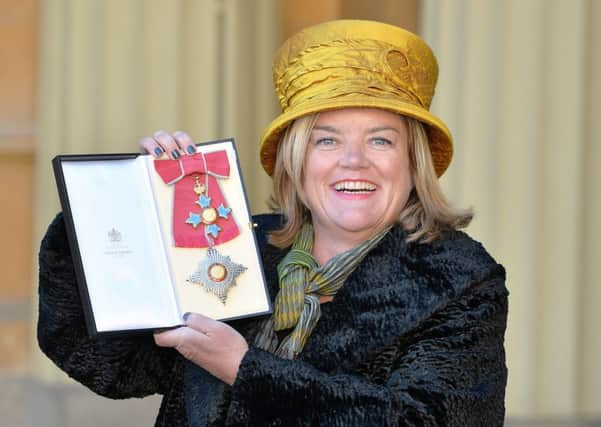YP Comment: David Cameron's gimmicks fail troubled families


He wanted public agencies to specifically work with 120,000 dysfunctional families so youngsters had more structure to their lives and might, in time, be able to further their prospects.
Yet, despite citing £1.2bn of savings as a result of this pioneering scheme overseen by anti-social behaviour expert Louise Casey, who recently received a damehood, it appears this was a gross exaggeration.
Advertisement
Hide AdAdvertisement
Hide AdAccording to a, frankly, damning report for Parliament’s Public Accounts Committee, it appears that Mr Cameron’s officials came up with this assertion based on short-term outcomes rather than “long-term sustainable change in families lives”.
This is key. Just as Iain Duncan Smith, the former Work and Pensions Secretary, said it was important to wean people off benefits as they made the transition into regular employment, it’s also key that problem families do not return to their errant ways, such as an addiction with drugs, as soon as the support of local agencies is withdrawn.
And this comes down to the political culture begun by Tony Blair and then followed to the Nth degree by Mr Cameron. On too many occasions, they sought short-term solutions to long-term societal challenges. The consequence? Government by gimmick, public resources squandered and a collective lack of confidence in the trustworthiness of those politicians known to bend the facts to suit their own agenda. As committee chairman Meg Hillier noted: “A tick in a box to meet a Prime Ministerial target is no substitute for a lasting solution to difficulties that may take years to properly address.”
She’s right, hence the need for far greater transparency over the programme’s successes and failures before more good money is thrown after bad. Rather than waiting for the next update from the Publics Account Committee, perhaps Ministers should be honour-bound to provide a quarterly update to Parliament on such schemes in the future so there is, in fact, some element of accountability which has been so woefully lacking in this instance.
The right to strike
Advertisement
Hide AdAdvertisement
Hide AdTHERESA May is right. Calls for more draconian laws to curtail the more militant trade unions is of secondary importance to reconciling those disputes causing great inconvenience. However the Prime Minister’s problem is that the belligerent unions seem incapable of showing any humanity towards all those whose Christmas plans are being disrupted by the wave of unrest.
They’re doing themselves no favours whatsoever. By being totally unreasonable – driver only trains, for example, are not a new phenomenon – they will not be taken seriously when they do have legitimate grievance pertaining to health and safety.
This intransigence simply plays into the hands of those Tory MPs who are calling for Mrs May to stand up to the unions and move to outlaw the right to strike in key public services (policing, for example, is already governed by such an agreement). And this makes Mrs May’s position even more invidious. If she listens to the likes of Norman Tebbit and his ilk, she’s accused of being extreme. If she doesn’t, some Tories will say she’s guilty of weak leadership.
This is all the more reason for the Government to consider increasing the remit of the conciliation service Acas so disputes do not escalate out of hand in the first place.
A giant of cinema
Advertisement
Hide AdAdvertisement
Hide AdANTHONY Minghella was a student in Hull and later became a lecturer there before going on to establish himself as a Hollywood great, so it is fitting that the place he once called home is honouring the much-missed film director with a special retrospective as part of next year’s UK City of Culture celebrations.
Minghella was one of Hull’s biggest cultural exports, becoming a towering figure in the film industry thanks to a string of hugely successful films including The Talented Mr Ripley, Cold Mountain and The English Patient.
His untimely death at the age of 54 in 2008 left a huge gap in British cultural life, but his legacy can still be seen in Hull in the shape of the city’s university which is home to the Anthony Minghella studio where new generations of aspiring film-makers hone their craft.
The Oscar-winning director never forgot the crucial, formative years he spent in Hull and the city hasn’t forgotten him. He was, and remains, a genuine titan of cinema.